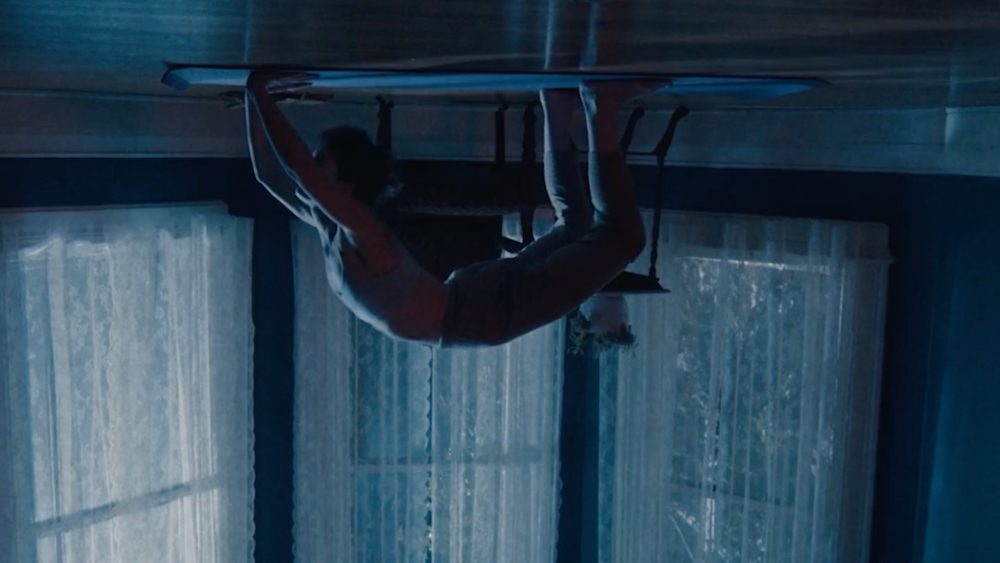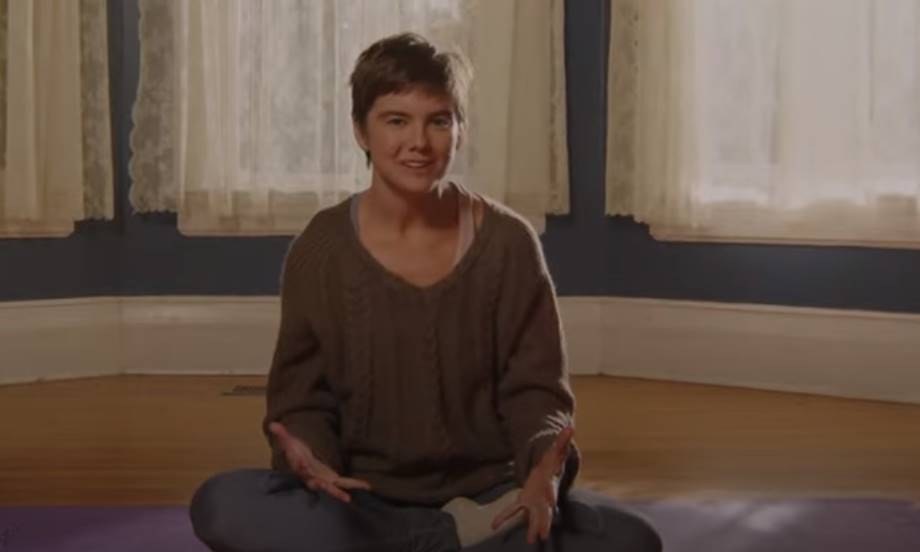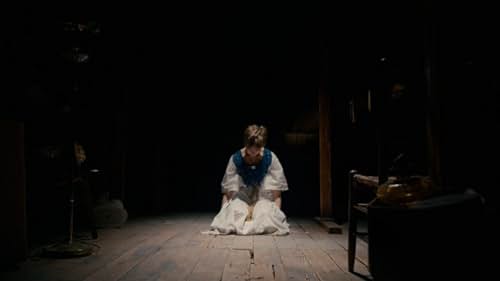Consider the names given to yoga poses. Balasana, Cobra Pose, Shavasana (also known as the Corpse Pose), Trikonasana, all names that speak to the ancient origins of the practice. They carry history, meaning, a spiritual force that’s secured their continued use among practitioners. Something so old, with so much story behind it, is sure to be ripe for a haunting.
This is what directors Alex Henes and Matthew Merenda decide on for their horror movies Mind Body Spirit, a found-footage piece that follows a wellness influencer called Anya who discovers her deceased grandmother left her a book with some very strange Slavic rituals contained within it. Of course, Anya indulges her dead grandmother’s wishes and goes through the rituals, recording herself in the process for all her future followers to see.

The rituals feature certain poses that look quite yoga-friendly but are not necessarily tuned to the kind of spiritual frequency that’s associated with the original Indian discipline. If anything, it makes one’s spirit receptive to a darker energy that can corrupt rather than cleanse.
Mind Body Spirit keeps the camera on Anya for almost the entirety of its runtime, which makes the movie’s success depend on actress Sarah J. Bartholomew‘s performance as the troubled yoga influencer. Bartholomew takes on the challenge with confidence, leaning on the character’s naturally anxious desire to bring her to life and make her relatable. She goes from insecure influencer to raw nerve ending seamlessly, letting Anya’s physical presence tell a lot of the story the directors keep purposefully vague.
There are hints of trauma in Anya’s backstory, along with enough emotional baggage to prop up a personality that’s somewhat of a lost soul. They aren’t explicitly offered in exposition, cleverly denying audiences easy answers. This turns the character into a kind of puzzle box that slowly reveals parts of itself the deeper she goes into the ritualistic routines her grandmother de ella details her in her book de ella. It’s smart, mostly because it allows directors Henes and Merenda to better explore the very millennial fears and anxieties Anya represents more fully.

Anya is in a process of self-discovery when she starts recording her yoga videos (using Mind Body Spirit as her name brand). It stems from being kept away from her weird grandmother ella growing up, which explains why she moved to her house ella after she died; gets further amplified by the presence of Anya’s overprotective mother (which we see in certain video call sequences), a figure that represents a constant source of anxiety and worry that does more to fuel insecurity than to offer support; is made worse by the introduction of an additional pressure point in the form of an influencer friend that was asked by Anya’s mom to help kickstart Anya’s new social media venture; and is rounded off by a deep desire to reconnect with lost family memories and traditions via the dead grandmother’s book.
In essence, Anya is a millennial time bomb. She’s decided to reckon with her trauma and her identity simultaneously as she dives headfirst into the prospect of becoming an influencer all while digging into unhealthy family roots, which reveal themselves to be dark and malicious rather quickly (to everyone other than Anya, that es).
There’s a fair bit of criticism here on how naïve millennials can be when addressing their sense of self, especially as it pertains to the decision to livestream or make reels out of the process for mass consumption. On the other hand, care is also given to make sure Anya isn’t a millennial caricature. The existential problems she faces are serious and worthy of attention, and there’s intention in showing how overbearing and debilitating they can be. And yet, the focus is on how newer generations are finding solutions in things that have a high probability of ending up working against them. It doesn’t get any clearer as a metaphor than making wellness content out of ancient evil yoga rituals.

When each new phase detailed in the book manifests itself, Anya falls deeper into the rabbit hole her own grandmother laid out to trap her. Impossible body stretches and painful spiritual purges push her further and further into a kind of healing she thinks is good for but is nothing but. That’s where the movie invites the question of how much discovery in any self-discovery process is enough. How do you know when to stop?
Mind Body Spirit puts the proverbial mirror in front of the tech-hungry millennial generation and asks them to reconsider how they go about problem-solving their deepest traumas. Directors Henes and Merenda paint a picture of emotional despair in Anya and then feed it a book of dark magic masquerading as a solution. The fact the movie follows Anya from the point of view of multiple recording devices that capture every single moment of her new life journey speaks volumes to how misguided current methods of personal improvement can be. If you learn anything after watching Mind Body Spiritmake sure it’s to not curse yourself while creating digital content to process your traumas.


